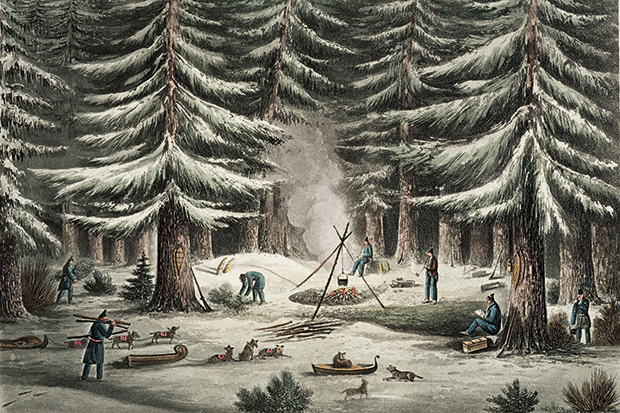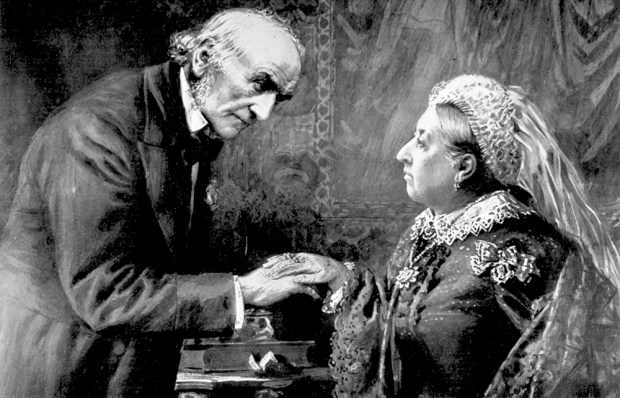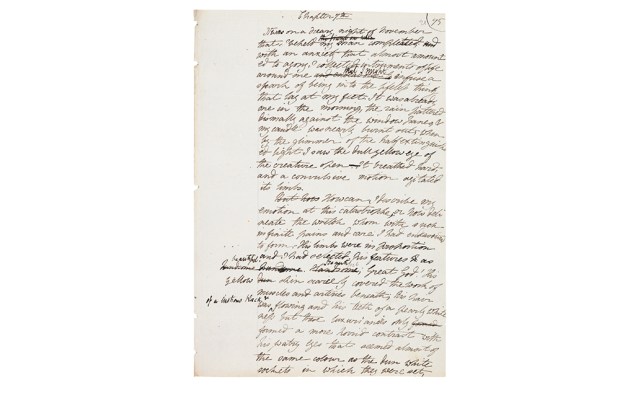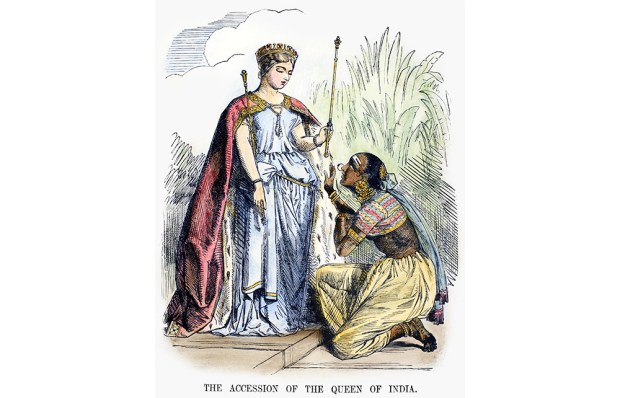In spurts and bursts and flashes, a sublime novelist at work reveals herself. In Annie Proulx’s new novel, there are breath-taking pages and set pieces of extraordinary power. A man on board a ship, as the temperature plummets, sees all those around him embedded in ice before the catastrophe falls on him; a logging run down a river blocks, builds and explodes with the force of missiles; a wall of fire sweeps across a forested wildness. There are individual chapters of great dramatic force, as Proulx’s people confront the possibilities before them and produce their own solutions. But are those flashes enough? Barkskins in the end seems to me a work of profound error, in which a novelist’s conscious decisions have done a good deal to suppress what that novelist can do best.
Proulx is an unpredictable writer, whose career has sometimes tested the patience of even the most sympathetic admirer. In my view, she has written two of the great American novels of the last 25 years, in The Shipping News and That Old Ace in the Hole. They are books primarily of place, where a dauntless spirit of inventive improvisation and passionate devotion to arcane detail rules over more ordinary virtues. But there is, too, a serious disappointment in Accordion Crimes, where, as in her promising first novel, Postcards, an arbitrary decision about the novelistic structure cramps her freedom. When she is good, as in her great short story ‘Brokeback Mountain’, it’s because her novelist’s eye follows a character into their world, not quite knowing what they will find there; when she fails, it is because she has decided that it would be interesting to fill a predetermined shape, like a model village, with suitable inhabitants.
Barkskins is a highly ambitious attempt to tell a story over hundreds of years. It is, rather curiously, an epic history of America with almost no black people in it. Like Buddenbrooks, which it resembles in some ways (and would benefit from resembling in more), its overriding narrative and grand theme must extend over several generations — in Thomas Mann, the extinction of the male line; in Annie Proulx, the eradication of the North American forests. As in Mann, the most natural way to express the subject is through the travails of a family business, handed down from father to son. (Interestingly, by far the most effective stretch of Barkskins is its description of the 19th-century family firm — which overlaps with Mann.)
Proulx’s story begins with two indentured servants arriving in Canada from France in 1693. They are effectively white slaves to a landowner, Trépagny, for a theoretically limited period, after which they will have earned their freedom and the means to support themselves. One, René Sel, stays where he is, marrying into the local Indian people, the Mi’kmaq. The other, Charles Duquet, soon escapes and inserts himself into the global networks of trade and commodity, running timber and furs from Canada to China. The novel concerns itself with the two characters’ descendants and their engagements with trade and land as the world changes around them. One family is destroyed by the white man’s imperatives; the other rules the world through despoliation.
Three hundred years is a colossal period for any narrative to try to cover. Another recent novel by an ambitious American woman novelist, Jane Smiley, also tried to narrate a long stretch of time — in her case a century. It poses a number of problems for the novelist. No character will be given much space to breathe, and some are born and die of old age with disconcerting rapidity. Proulx’s novel succeeds when she allows herself to follow a single life with some relaxed spaciousness: those of the two original men, for instance, or of Lavinia Duke, who (as 19th-century heroines tend to be these days) is a strong woman making her way in a man’s world — in this case, the logging business. But when Proulx runs quickly through quite similar generations — René Sel’s Mi’kmaq children and grandchildren, for instance, or the rush of plutocrats that follow Lavinia — we struggle. A novel can’t just be about trees, and at the end — when the Mi’kmaq descendants are reduced to explaining the state of forestry and conservation to each other — the limits of Proulx’s approach are all too apparent.
On this scale, and with this kind of treatment, whole groups of people are inevitably flattened out — I regret to say, in accordance with preconceived ideas. In the first half of the book, the British are simply remote villains, disgusting thugs and murderers who are never worth engaging with; by the end, the novel is still at it, and ‘English women have no sense of humour’, preposterously. Native Indians, on the other hand, are invariably wise, understand everything from saplings onwards, live in wikuoms (not wigwams, please) and are particularly good at medicine. One of the characters dies from an infected wound from a nail in his boot. I would have thought that the novelist might admit that the forest medicine of her wise women in wikuoms would be less effective in this case than the antibiotics that the thuggish English would go on to discover, but there you go. On the other hand, one important part of American history goes almost unnoticed; it is extraordinary how little impact the institution of slavery and the fight to abolish it makes on Proulx’s world.
Of course, the novelist is not bound to give a full account of history, and Proulx is a famous exponent of detail. Here, the historical detail takes an interesting form: she is interested in pioneers, and repeatedly appears to be teasing the reader with apparent anachronisms. Almost always, they turn out to be (just about) possible. The invention of mayonnaise is noted; ‘newspapers’ in Boston in 1710; a sea captain prescribing ‘scurvy-preventing lemon juice’ in the 1720s; and a 17th-century wedding serves champagne and whisky. (‘Champagne’ would not, I think, have been called that exactly, and would certainly not have resembled the modern drink.) Could there really have been a medical doctor in 18th-century America called Mukhtar? There were a few Asians in North America at that time, but as far as I know they were all domestic servants. Did loggers in camps in the 1750s really drink tea, and offer it to each other? The one indubitable anachronism I found was that no one would have described houses in London as ‘Georgian’ in 1825 — but that falls into the territory of the despised enemy.
In the end, Barkskins fails to work and, sadly, proves rather boring. Too much of the handling is depressingly routine: German characters, in the way of fictional foreigners, know the English word ‘fiendish’ but not ‘dog’. There is picturesque historical-novel dialogue by the yard (and picturesque food too: ‘May I fetch you another dollop of syllabub?’). The wise Indians speak in the oracular style made familiar by decades of Hollywood Westerns: ‘You are the son of Mali, long-ago wife of my brother Lolan before he ceased his existence.’ If some of the set pieces are splendidly vivid, others could not be more casually despatched. This is one sea storm:
But if Captain Luther Pearfowle’s storm was imaginary, the tempest that caught Bludwesp was terrifyingly real. Great seas rose and fell on them with shuddering crashes. The bare masts groaned and the rigging ropes howled. A black monster swelled on the horizon, raced towards them….
Really, it would have been better just to write ‘There was a storm’ rather than extend the description in this half-hearted manner.
So, when Proulx is detailed and leisurely, she can be most compelling — and what is That Old Ace in the Hole but a gigantic shaggy-dog story? But when she feels she has to get through 50 years in 100 pages, and can’t afford to dawdle, the writing grows generalised and summary — the vision of the statistician, the historian of society, the ecologist, and not that of the novelist fascinated by the individual case.
I finished this book with real regret: that such an interesting novelist should have devoted her time to a project that was not just beyond her powers to bring off, but one actually inimical to what the novel form does best.
Got something to add? Join the discussion and comment below.
Get 10 issues for just $10
Subscribe to The Spectator Australia today for the next 10 magazine issues, plus full online access, for just $10.
You might disagree with half of it, but you’ll enjoy reading all of it. Try your first month for free, then just $2 a week for the remainder of your first year.














Comments
Don't miss out
Join the conversation with other Spectator Australia readers. Subscribe to leave a comment.
SUBSCRIBEAlready a subscriber? Log in